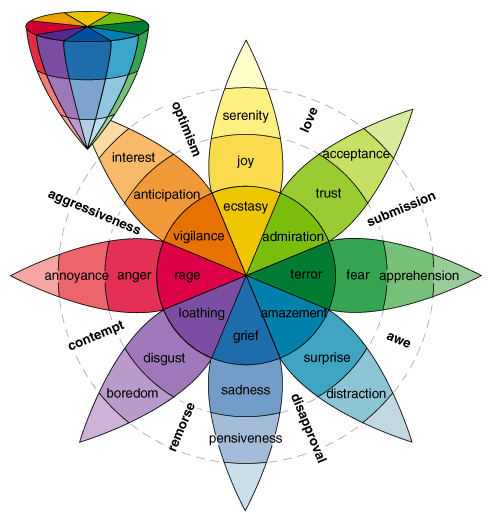Deductive
reasoning
Deductive
reasoning is any form of reasoning that moves from general to
particular.Deductive Reasoning: examples
- In mathematics, If A = B and B = C, then A = C.
- All apples are fruits, all fruits grow on trees; therefore, all apples grow on trees.
- William is a bachelor, all bachelors are single; hence William is single.
- Since all humans are mortal, and I am a human, then I am mortal.
- All dolphins are mammals, all mammals have kidneys; therefore all dolphins have kidneys.
- Since all squares are rectangles, and all rectangles have four sides, so all squares have four sides.
- If Dennis misses work and at work there is a party, then Dennis will miss the party.
- All numbers ending in 0 or 5 are divisible by 5. The number 35 ends with a 5, so it is divisible by 5.
- The Earth is a planet, and all planets orbit a sun, therefore the Earth orbits a sun.
- To earn a master’s degree, a student must have 32 credits. Tim has 40 credits, so Tim will earn a master’s degree.
- All birds have feathers and robins are birds, so robins have feathers.
- It is dangerous to drive on icy streets. The streets are icy now so it is dangerous to drive now.
- All cats have a keen sense of smell. Fluffy is a cat, so Fluffy has a keen sense of smell.
- The elm is a tree and all trees have bark, so elms have bark.
- Snakes are reptiles and reptiles are cold-blooded; therefore, snakes are cold-blooded.
- Cacti are plants and all plants perform photosynthesis; therefore, cacti perform photosynthesis.
- Red meat has iron in it and beef is red meat, so beef has iron in it.
- Acute angles are less than 90 degrees and this angle is 40 degrees so this angle is acute.
- All noble gases are stable and helium is a noble gas, so helium is stable.
- Magnolias are dicots and dicots have two embryonic leaves; therefore magnolias have two embryonic leaves.
- Elephants have cells in their bodies and all cells have DNA, so elephants have DNA.
- All cars have at least two doors and a Ford Focus is a car, so the Ford Focus has at least two doors.
- All horses
have manes and the Arabian is a horse; therefore Arabians have
manes.
Inductive
reasoning:
While deductive
reasoning goes from general to particular, another kind of reasoning,
inductive reasoning, goes in opposite direction - from the particular
to general.Inductive Reasoning: examples
- Jill and Bob are friends. Jill likes to dance, cook and write. Bob likes to dance and cook. Therefore it can be assumed he also likes to write.
- Jennifer leaves for school at 7:00 a.m. and is on time. Jennifer assumes, then, that she will always be on time if she leaves at 7:00 a.m.
- Robert is a teacher. All teachers are nice. Therefore, it can be assumed that Robert is nice.
- All cats that you have observed purr. Therefore, every cat must purr.
- All students that have been taught by Mrs. Smith are right handed. So, Mrs. Smith assumes that all students are right handed.
- All observed basketball players are tall, so all basketball players must be tall.
- All observed women in one area wear high heels, so all women must wear high heels.
- Suzy is a doctor. Doctors are smart. Suzy is assumed to be smart.
- John is a financial analyst. Individuals with professions in finance are very serious people. John is a very serious person.
- Jerry is a bartender. Bartenders are friendly. Jerry is assumed to be friendly.
- All observed brown dogs are small dogs. Therefore, all small dogs are brown.
- All observed children like to play with Legos. All children, therefore, enjoy playing with Legos.
- The water at the beach has always been about 75 degrees in July. It is July. The water will be about 75 degrees.
- All observed police officers are under 50 years old. John is a police officer. John is under 50 years old.
- Mary and Sue are friends. Mary enjoys fishing, running and rock climbing. Sue likes fishing and rock climbing. Sue must also like running.
- Barry is a baseball player. All baseball players can make it to first base in at least 4 seconds. Barry can make it to first base in at least 4 seconds.
- Ray is a football player. All football players weigh more than 170 pounds. Ray weighs more than 170 pounds.
- All observed lacrosse players are tall and thin. George plays lacrosse. It is assumed that George is tall and thin.
- All little dogs are "yappy." Bill has a small dog. His dog barks frequently at a high pitched level.
- All observed cats in the area are brown. Tiny is a cat. Tiny is brown.
- All observed houses on the South Street are falling apart. Sherry lives on South Street. Her house is falling apart.
- Jenny is a dancer. Dancers are thin and tall. Jenny is thin and tall.
- Bob is a
sumo wrestler. Sumo wrestlers weigh a lot. Bob weighs a lot.


Sources:
http://examples.yourdictionary.com













